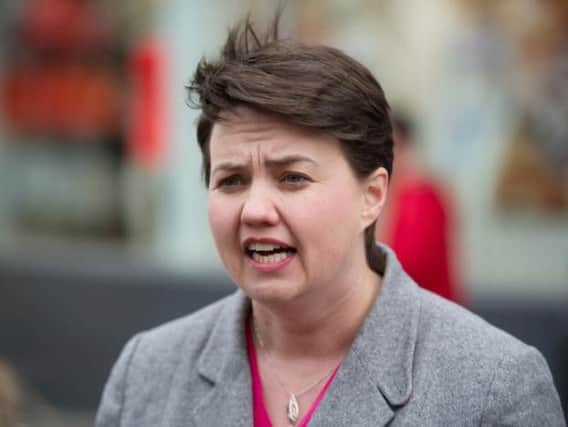Ruth Davidson leads calls for suffragette pardons


The Scottish Conservative leader was followed by Jeremy Corbyn in calling for women arrested for protesting and committing acts of civil disobedience to have their convictions overturned. The Home Secretary said individual cases would be looked at.
Marking the 100th anniversary of the Representation of the People Act, which gave the first voting rights to women in the UK, Ms Davidson wrote in the Daily Telegraph: "Voting was a value judgment, not an intrinsic right.
Advertisement
Hide AdAdvertisement
Hide Ad“That inequality is one of the reasons why I support calls by family members to offer a posthumous pardon to those suffragettes charged with righting that wrong."
There were more than 1,300 suffragette arrests according to the England, Suffragettes Arrested, 1906-1914 collection.
Many went on to be jailed, including leader Emmeline Pankhurst.
As a founder member of the Woman's Social and Political Union (WSPU), Pankhurst was sentenced to repeated stretches in prison as a result of her militant activity.
At a special meeting of the shadow cabinet held at the Museum of London to mark the suffrage anniversary, Mr Corbyn told his top team: "As a country, we must recognise and honour the enormous contribution and sacrifice made by women who campaigned for the right to vote.
"Many of those women were treated appallingly by society and the state. Convictions of suffragettes were politically motivated and bore no relation to the acts committed.
"Some were severely mistreated and force-fed in prison post-conviction so a pardon could mean something to their families."
He added: "Labour in government will both pardon the suffragettes and give an official apology for the miscarriages of justice and wider persecution they suffered."
Advertisement
Hide AdAdvertisement
Hide AdSam Smethers, chief executive of the Fawcett Society, named after suffragist Millicent Fawcett, said: "Suffragette activism was for a noble cause and many of them became political prisoners. It would be a fitting tribute to pardon them now.
"They made such sacrifices so that we could all enjoy the rights we have today. In any meaningful sense of the word, they were not criminals."
Speaking on the BBC’s Today programme, Home Secretary Amber Rudd said she will "look at" the issue but warned it would be "complicated" when looking at cases of arson and violence.
Ms Rudd said Turing's Law, which pardoned thousands of gay and bisexual men convicted of now-abolished sexual offences, had set a precedent.
"I have seen this campaign, I completely understand where it's coming from, the extraordinary pained campaign, violence that these women went through in order to deliver the vote, which has been of such benefit to us for generations,” she said.
"So I will take a look at it, but I must be frank, it is complicated because if you're going to give a legal pardon for things like arson and violence it's not as straightforward as people think it might be, but I will certainly look at proposals."
She added: "I think there is something different about them but I'm just pointing out, unfortunately, the practical reality of bypassing the law in this way, but as I said, I would like to take a look at individual proposals to see what can be done."